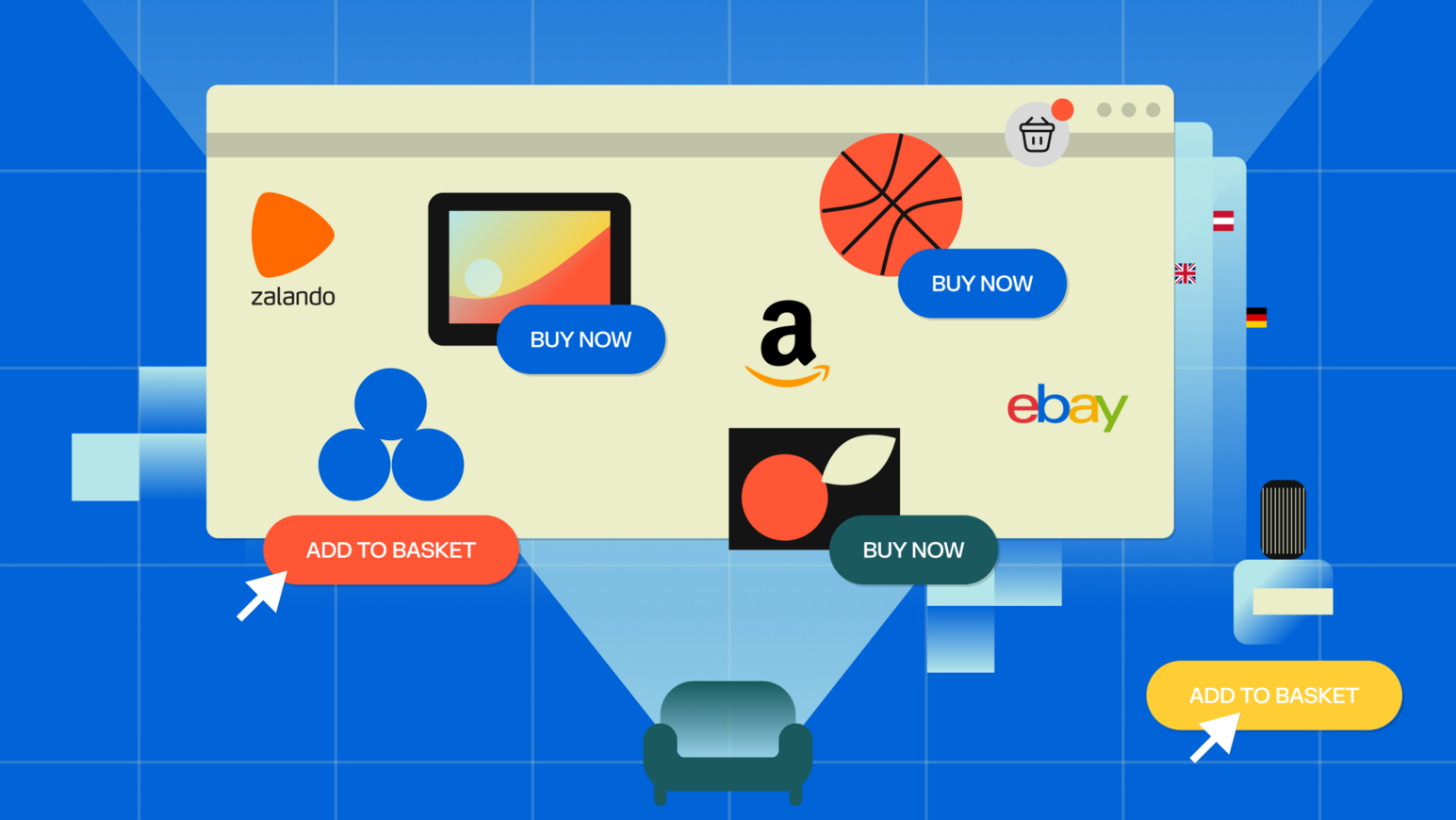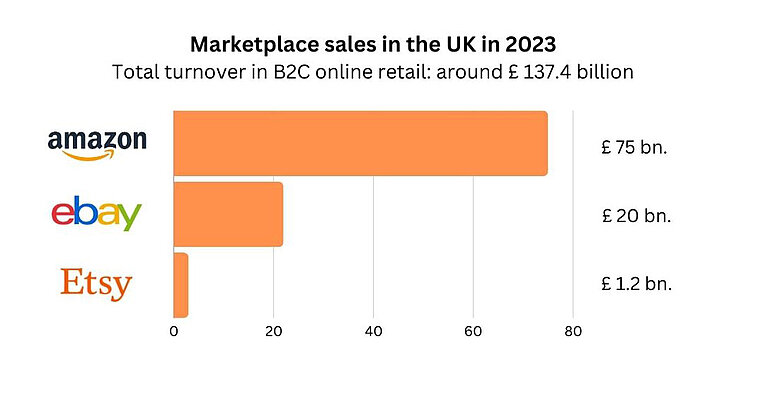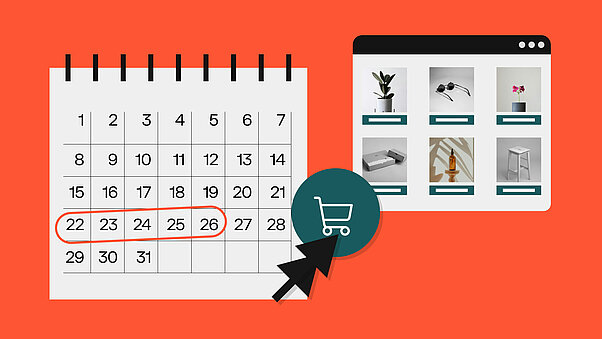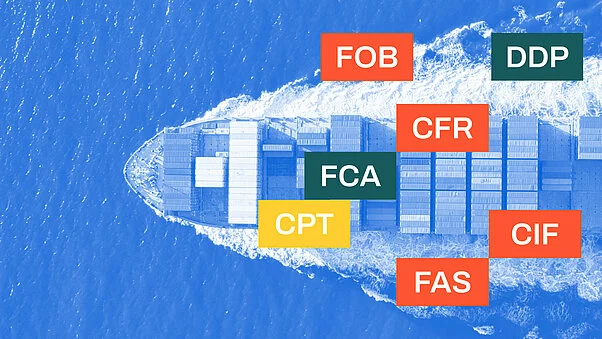The Ultimate 2024 Guide to Succeeding on UK's Online Marketplaces

Join us on an exploration of the online marketplace landscape in the UK for 2024: This comprehensive guide is designed for e-commerce merchants as well as anyone interested in the latest trends in online trading!
We cover everything: From a broad overview, including comparisons, the pros and cons, to specific advice on how you can leverage the various marketplaces in the UK to propel your business forward. Let's dive in!
- Definition and Importance of Online Marketplaces in the UK
- How Online Marketplaces Operate in the UK
- How To Successfully Enter Online Marketplaces In The UK
- Statistics and Trends in the UK Online Marketplace Sector
- Comparing Different Online Marketplaces in the UK
- Top 20 Marketplaces in the UK: An Overview and Comparison
- Pros and Cons of Using Online Marketplaces for UK Retailers
- Alternatives to Online Marketplaces and Their Benefits in the UK Context
- Legal and Regulatory Considerations for Selling on UK Online Marketplaces
- How Fulfilment Providers Can Support UK Online Merchants
Definition and Importance of Online Marketplaces in the UK
Online marketplaces have revolutionized the way we buy and sell, offering a platform where merchants and buyers from across the UK and beyond can come together.
For aspiring and established online shop operators, they are indispensable channels to offer their products to a wider audience.
The basic definition:
An online marketplace is a website where products and services from various merchants are offered. Unlike a regular e-commerce shop, where a single company sells its goods, an online marketplace gathers a variety of businesses under one roof.
These digital platforms act as intermediaries, enabling simple, wide-ranging trade without the need for companies to operate a multitude (a variety) of physical stores.
The most well-known online marketplace in the UK is probably Amazon. eBay, ASOS Etsy and others are also widely used.
- The online marketplace industry in the UK is booming: In 2023, the UK e-commerce market was valued at £137.4 billion and is projected to grow to £152.4 billion by 2024.

How Online Marketplaces Operate in the UK
The functioning of an online marketplace can roughly be divided into three steps:
1. Platform Operation:
The operator of the marketplace provides the technical platform, takes care of maintenance, marketing, and payment processing.
The marketplace operator acts as an intermediary and ensures a smooth transaction process between companies and their customers.
- Note: The marketplace's offering naturally depends heavily on the operator. Further down, you will learn all about the differences between the various platforms.
2. Seller Integration:
Sellers can register on the marketplace to offer their products.
They are responsible for listing their products, managing inventory, and often also for processing orders. Typically, merchants pay fees for selling on the platform, which can be either a percentage of the sales price or a flat listing fee.
- Businesses often resort to fulfilment providers like Quivo, who take care of their entire logistics in an automated manner. Learn more about fulfilment here.
3. Buyer Interaction
Customers use the platform to search, compare, and purchase products. Online marketplaces often offer advanced search functions, customer reviews, and other tools to facilitate the buying decision.
How To Successfully Enter Online Marketplaces In The UK
For businesses looking to enter online marketplaces in the UK, the process begins with registering as a seller on the desired platform.
This generally includes:
- Creating a Seller Account: You'll need to supply all necessary business details and legal information pertinent to the UK market. This includes your VAT registration, company registration details, and contact information tailored to a UK audience.
- Product Listings: After setting up your account, the next step is to list your products. This requires adding comprehensive descriptions, high-quality images, and setting competitive prices for each product. It's crucial that your listings are clear, accurate, and visually appealing to captivate potential customers.
- Determining Shipping Options and Costs: It's important to outline your shipping policies clearly, including options and costs. The UK market values transparency in shipping processes, so providing detailed information on delivery times, costs, and options for different regions within the UK can enhance customer trust and satisfaction.
Once your setup is complete, you can begin selling, managing customer feedback, and gradually enhancing your presence on the platform. This step-by-step enhancement is essential for increasing your sales and establishing a strong foothold in the competitive landscape of online marketplaces in the UK.
The Impact of Online Marketplaces in the UK: Statistics and Insights
In the UK, online marketplaces such as Amazon, ASOS, eBay, and others play a pivotal role in the e-commerce sector, especially for smaller businesses. These platforms provide access to a vast customer base, enabling businesses to enter the online retail space quickly and with relatively low initial investments.
The rise of online marketplaces has undoubtedly created a significant business sector, offering attractive opportunities for many companies!

- According to the UK's Association of Online Retailers, the whole e-commerce sector in the UK generated over £137 billion in 2023, with a substantial portion of this revenue coming from B2C online marketplaces.
- Platforms like Amazon.co.uk and eBay.co.uk attract millions of users monthly in the UK, highlighting the enormous reach of these marketplaces. Furthermore, they are the biggest spenders on advertising, significantly investing in marketing to draw in consumers.
- Amazon, in particular, holds a dominant position in the UK's e-commerce market. In 2023, Amazon's share of the online retail market was around 32%, excluding sales through its marketplace. With marketplace sales included, Amazon's share rose to approximately 54%, underscoring its significant influence on the UK e-commerce landscape.
- Platforms like Amazon.co.uk and eBay.co.uk attract millions of users monthly in the UK, highlighting the enormous reach of these marketplaces. Furthermore, they are the biggest spenders on advertising, significantly investing in marketing to draw in consumers.
How Do Online Marketplaces Differ in the UK?
Online marketplaces in the UK are as varied as they come, spanning from traditional B2C to B2B platforms, and even C2C ("Consumer-to-Consumer") channels. The landscape is diverse.
These marketplaces vary greatly in structure, offerings, and target audiences. Some focus on specific product categories like electronics or niches such as handicrafts, while others offer a broad spectrum of goods. Thus, for online merchants, choosing the right marketplace is crucial!
Here's a detailed breakdown of the different types of online marketplaces you can find in the UK and globally:
B2C (Business-to-Consumer) Marketplaces:
These platforms connect (online) shops directly with end consumers. They are ideal for merchants looking to offer their products to a broad audience.
Example: Amazon.co.uk, ASOSB2B (Business-to-Business) Marketplaces:
Focused on trade between businesses, these marketplaces are perfect for wholesale, procurement of operational materials, and services between business partners.
Example: AlibabaC2C (Consumer-to-Consumer) Marketplaces:
These allow for the direct sale of goods or services between consumers. They are best suited for used items or handmade products.
Example: eBay, Gumtree

Another way to differentiate:
Vertical Marketplaces:
Focus on niches or specific product categories and offer a wide selection within a particular segment.Example: Auto Trader (Vehicles), Etsy (Handmade & Vintage)
Horizontal Marketplaces:
Offer a wide range of products but from various categories. These "jack-of-all-trades" platforms aim to cater to the needs of different customer segments with a variety of products at once.
Example: Amazon.co.uk, eBay.co.uk
Hybrid Marketplaces:
Combine elements of B2B, B2C, and C2C by operating a single platform for various types of transactions. These marketplaces offer a wide range of products and services for different target audiences - whether businesses or individuals.
Example: Amazon (offers both B2C and B2B sales options)
Pro Tip: Plan your business's strategic direction based on the different marketplaces. Each has its advantages and disadvantages. You'll reach entirely different buyer segments depending on where you sell. Some enhance your brand's visibility, while others boost your sales.
Consider and try becoming an omnichannel merchant! Regarding logistics, as a fulfilment provider, we can support you in any case.
Overview and Comparison of the Top 20 Marketplaces in the UK
The UK is home to a diverse online marketplace landscape. Alongside global giants like Amazon and eBay, there are numerous local players catering to specific needs and niches. This diversity provides merchants with a wide array of options for showcasing their products without the need to build extensive marketing or logistics networks themselves.
Here's an overview of the top 20 online marketplaces in the UK and which businesses they suit:
Amazon.co.uk:
- The most renowned and largest marketplace with a broad product range.
- Provides an effective platform for a variety of sellers.
The US-based online behemoth dominates the UK e-commerce landscape too, offering a wide array of products, from electronics to groceries, alongside its Prime program, establishing a strong market position in the country.
For merchants, Amazon offers many useful tools and a huge customer base, though competition on the platform can be fierce! Fees and requirements may also pose challenges for smaller businesses.
- In this detailed article, we take a look at the advantages and disadvantages of Amazon's Seller programme: Take a look!

eBay.co.uk:
- Known for auctions and fixed-price offers.
- Diverse product spectrum, from new items to second-hand goods.
As one of the pioneer online marketplaces, the US company has a loyal user base in the UK, offering a platform for both private and commercial sellers, distinguished by its auction format.
The platform is particularly attractive for businesses selling second-hand items, collectibles, or specialty products.
ASOS.com:
- Leading in fashion and lifestyle segments.
- Young target audience with a focus on European markets.
Initially started as an online shoe and fashion retailer, ASOS has evolved into one of the leading fashion marketplaces in Europe.
For merchants in the fashion sector, ASOS presents an attractive platform, catering to a young and fashion-conscious audience.
Etsy.com:
- Online marketplace for handmade, vintage, and unique goods.
- Millions of creative buyers and sellers worldwide.
NotOnTheHighStreet.com:
- Specializes in unique gift items and handcrafted goods.
- Appeals to consumers looking for personalized and distinctive products.

Alibaba/AliExpress:
- Leading global B2B and B2C marketplace for wholesalers.
- Popular for importing products from China, often at lower prices.
Wayfair.co.uk:
- Online shop for furniture and home accessories.
- International marketplace with a strong presence in the UK.
Gumtree.com:
- Classified ads site that also serves as a C2C marketplace.
- Suitable for a wide range of items, including second-hand goods, cars, and property.
Depop.com:
- Fashion-forward platform focused on unique, vintage, and second-hand clothing.
- Popular among younger, style-conscious consumers.e.
Zalando.co.uk:
- Specializes in fashion and offers a wide variety of brands and styles.
- Similar to its German counterpart, focusing on a young and fashion-savvy audience.
Folksy:
- Similar to Etsy, Folksy is a UK-based online marketplace dedicated to handmade or designed items from UK craftsmen and artists, perfect for selling unique, handcrafted goods.
Trouva:
- A platform that brings together independent boutiques and shops, offering a range of homeware, lifestyle, and fashion products from across the UK.
OnBuy:
- A rapidly growing UK-based marketplace offering a wide range of products, from electronics to beauty, aiming to provide lower fees for sellers compared to other platforms.
Flubit:
- A UK-based online marketplace that offers a wide range of products across different categories, including electronics, home, and garden.
eBid:
- An auction platform that operates similarly to eBay, allowing sellers to list items for sale either through auctions or fixed-price listings.
Grailed:
- A community-driven marketplace focused on men's fashion, especially popular for selling high-end and streetwear brands.
Vinted:
- Primarily a second-hand fashion marketplace, Vinted is great for individuals looking to sell and buy pre-loved clothing and accessories.
Crafts Council Directory:
- An online platform that showcases UK-based craft professionals, offering a space for the sale of high-quality, handmade items ranging from ceramics to textiles.
Farmison & Co:
- While not a traditional marketplace, it's an excellent platform for UK farmers to sell meat and produce directly to consumers, focusing on quality and sustainability.
LoveCrafts:
- A community and marketplace for those passionate about knitting, crocheting, and other crafts, offering supplies, patterns, and inspiration.
![[Translate to UK:] Online Marktplatz Händlerin](/fileadmin/_processed_/6/8/csm_Online_marktplaetze_marketplaces_paket_shop_4f8ec3ace0.jpg)
The Pros and Cons of Online Marketplaces for Merchants in the UK
Deciding to offer your products on online marketplaces in the UK can significantly impact your business strategy as an e-commerce merchant.
Here are the key advantages and disadvantages you should be aware of:
Advantages:
Increased Visibility:
- Access to millions of potential customers.
- High-traffic platforms boost the likelihood of impulse purchases.
Lower Upfront Costs:
- No need for developing and maintaining your own online store.
- Reduced marketing expenses by leveraging the platform's resources and reach.
Easy Entry into E-commerce:
- Quick setup of seller accounts.
- Intuitive tools and processes for product listing and management.
Access to International Markets:
- Easier entry into exporting through the global reach of the platforms.
- Language barriers and local differences are mitigated by the structure of the online marketplace.
Additional Services:
- Many online marketplaces offer extra services like payment processing, logistics, and customer service support.
- Opportunity to benefit from fulfilment providers who automate the storage and shipping of your products.
Disadvantages:
Competition:
- High competition on popular platforms can make it difficult to stand out.
- Price wars with other sellers can erode profit margins.
Dependence on the Platform:
- Your business becomes reliant on the marketplace's rules and fee structures.
- Changes in policies or fees can have a direct impact on your profitability.
Limited Brand Visibility:
- It's challenging to build your brand's presence and loyalty through a third-party platform.
- Customers may associate their purchase with the platform rather than with your brand.
Control Over Customer Experience:
- Limited control over the end-to-end customer experience, which can impact customer satisfaction and repeat business.
- Restrictions on direct communication with customers can limit relationship building.
Our Tip: Leverage the best of both worlds! Combine the reach and infrastructure of established marketplaces with brand strengthening and customer loyalty through your own sales channels, like an individual online store. This approach reduces dependence on platforms, increases revenue, and enhances customer engagement.
If you need support with multichannel logistics, feel free to reach out at any time, or check out our comprehensive blog post for the best tips on omnichannel fulfilment!

Alternatives to Online Marketplaces and Their Benefits
In addition to traditional online marketplaces in the UK, there are various alternatives with their own set of benefits available to you as a merchant in the UK.
We've summarized the alternative online sales channels for you:
1. Own Online Store
Relatively easy-to-use online shop systems like Shopify or WooCommerce, allow for the creation of a completely unique e-commerce website, with full control over your brand experience.
- Benefits: Direct customer communication, collection of valuable customer data, complete control over design and user experience.
Our Tip: Invest in search engine optimisation (SEO) and employ online marketing strategies to drive traffic and thus more customers to your website.
2. Local Online Marketplaces
Platforms like Gumtree or local online shopping portals offer the opportunity to directly address customer segments in your area and offer products for self-pickup or local delivery.
- Benefits: Strengthening the local economy, personal customer service, lower logistics costs, greater focus on regionality and sustainability.
Our Tip: Emphasize the regional aspects of your offer and build a strong presence in your area.
3. Social Media Sales Platforms
Sales channels like Facebook Marketplace, Instagram Shopping, or Pinterest allow for selling directly through social media, where there's already a high user engagement rate.
- Benefits: Access to a large and engaged user base, opportunity to utilize influencer marketing.
Our Tip: The more present you are, the better. Use high-quality product photos and videos, and actively engage with your community to build a strong brand awareness and boost your sales.

4. Niche Marketplaces
Online marketplaces that specialize in specific product groups offer a targeted environment that can effectively serve a specific clientele.
Benefits: Reach within a very specific target group, less competition than on larger marketplaces, and often a dedicated community with good communication.
Our Tip: Ensure your products precisely fit into this niche and use the community features of these sales channels to gain more visibility.
5. Cross-Border E-Commerce
Also, seize the opportunity to operate internationally - both with your own webshop and on cross-border online marketplaces! This might seem daunting but is a very effective strategy for growth. Other markets often play by their own rules, which can significantly advance your business.
Benefits: Access to new, larger customer segments and diversification of your business risk.
Our Tip: Pay attention to compliance with local regulations and tax laws, and tailor your marketing strategies to the respective target markets.
Legal and Regulatory Considerations for Selling on UK Online Marketplaces
Selling on online marketplaces in the UK involves navigating a complex landscape of legal and regulatory requirements.
These are designed to protect consumers, ensure fair trading, and maintain compliance with both UK and EU regulations, where applicable. Key considerations include:
Data Protection and GDPR:
Compliance with the General Data Protection Regulation is crucial for sellers collecting and handling customer data. This involves obtaining explicit consent for data collection, ensuring data security, and providing clear privacy policies.
Consumer Rights Act 2015:
This Act outlines the rights of consumers, including the right to return products within 14 days of purchase, which applies to online sales. Sellers must be transparent about return policies and ensure they comply with these regulations.
VAT and Taxation:
Sellers must understand their obligations regarding VAT, especially since Brexit has introduced changes to VAT rules for goods sold into the UK. Registering for VAT in the UK may be necessary depending on your sales volume and where your business is based.
Product Compliance and Safety:
Products sold in the UK must comply with relevant safety standards and regulations. This includes CE marking for certain product categories, demonstrating that products meet EU standards for health, safety, and environmental protection.
Intellectual Property Rights:
Sellers must ensure they do not infringe on the intellectual property rights of others. This includes using proprietary images or selling counterfeit goods, which can result in legal action.
How a Fulfilment Provider Can Support You
Whether you sell your products through an online marketplace, your own online store, or as an omnichannel merchant, partnering with a fulfilment service provider like us can make a significant difference for your business!
A fulfilment provider ("3PL provider") takes care of the storage, packaging, and shipping of your products, allowing you to save valuable time and resources that you can instead invest in scaling your business and improving your offerings.
Benefits of working with a 3PL company:
- Increased Efficiency: Outsourcing logistic processes allows you to respond faster to orders and shorten your delivery times. This leads to higher customer satisfaction and strengthens customer loyalty.
- Cost Savings: Fulfilment providers often benefit from lower shipping rates due to their high shipping volumes. These savings can be passed on to you, reducing the overall costs of your logistics.
- Scalability: A fulfilment provider can easily handle seasonal fluctuations and the growth of your business. This gives you the flexibility to operate your business without the limitations of storage capacity or personnel resources.
- International Expansion: Globally operating fulfilment providers have international warehousing and shipping networks, enabling you to easily introduce your products into new markets and expand globally.
- Risk Reduction: Partnering with an experienced logistics partner helps you minimize risks associated with warehouse management, shipping, and customs clearance.
- Increased Efficiency: Outsourcing logistic processes allows you to respond faster to orders and shorten your delivery times. This leads to higher customer satisfaction and strengthens customer loyalty.

Future Outlook: The Evolution of Online Marketplaces in the UK
The online marketplace sector in the UK is poised for significant evolution in the coming years, driven by technological advancements, changing consumer behaviors, and regulatory shifts.
Anticipated trends include:
Increased Personalisation and AI Integration:
Marketplaces will likely leverage AI and machine learning more extensively to offer personalized shopping experiences, predictive analytics for stock management, and enhanced customer service through chatbots.
Growth in Niche Marketplaces:
The demand for specialized products and services is expected to drive the growth of niche marketplaces. These platforms cater to specific interests or communities, offering unique items not found on larger marketplaces.
Sustainability and Ethical Consumption:
There will be a stronger focus on sustainability, with more marketplaces and sellers emphasizing eco-friendly products, ethical sourcing, and transparent supply chains to meet consumer demand for responsible consumption.
Expansion of Cross-border E-commerce:
The global reach of online marketplaces will continue to expand, offering UK sellers more opportunities to reach international customers. However, this will also require navigating complex international regulations and logistics.
Blockchain and Secure Transactions:
Blockchain technology may become more prevalent for secure, transparent transactions and to combat counterfeit goods. This can enhance trust between buyers and sellers and streamline the authentication process for high-value items.
If you have any questions about online marketplaces and their logistics, or if we can assist you with fulfilment services, we're more than happy to help! Feel free to reach out anytime to see how we can support you.

Sources
Title: Top-selling online shops in the UK in 2021
URL: statista
Title: United Kingdom (UK): retail e-commerce revenue forecast from 2017 to 2027
URL: statista
Title: 14 BEST ONLINE MARKETPLACES TO SELL ON IN THE UK [2023]
URL: intelligentreach.com
Title: Online Marketplaces in the UK: Amazon and eBay Dominate
URL: webretailer.com
Title: E-commerce Statistics, Trends, and Insights
URL: theb2bhouse.com
Title: IFH Cologne: Amazon grows by 31 million euros every day in 2020
URL: ifhkoeln.de
The research and writing of this article was partially accelerated with the help of AI.
Image sources:
Quivo / Logsta © 2024
Canva
pexels
pixabay







